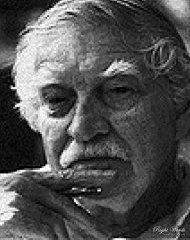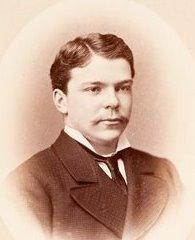May Quotes - Page 275

Friendship may well deserve the sacrifice of pleasure, though not of conscience.
Samuel Johnson (1761). “The Rambler: In Four Volumes”, p.58
Samuel Johnson, Arthur Murphy (1823). “The Works of Samuel Johnson: LL.D. A New Edition in Twelve Volumes. With an Essay on His Life and Genius, by Arthur Murphy, Esq”, p.102
The seeds of knowledge may be planted in solitude, but must be cultivated in public.
Samuel Johnson, Arthur Murphy (1837). “The Works of Samuel Johnson, LL. D.: With an Essay on His Life and Genius /c by Arthur Murphy, Esq”, p.257
James Boswell, Samuel Johnson (1868). “The Life of Samuel Johnson, LL. D.: Including His Tour to the Hebrides, Correspondence with Mrs. Thrale, &c. With Numerous Additions”, p.273
There may be community of material possessions, but there can never be community of love or esteem.
Samuel Johnson, Arthur Murphy (1825). “The works of Samuel Johnson, LL.D.: with Murphy's essay”, p.192
Samuel Johnson (1836). “The Works of Samuel Johnson, LL.: D., with an Essay on His Life and Genius”, p.149
James Boswell, Samuel Johnson (1859). “The Life of Samuel Johnson, LL. D.: Including a Journal of a Tour to the Hebrides”, p.524
Samuel Johnson (1825). “The works of Samuel Johnson, with Murphy's essay, ed. by R. Lynam”, p.292
"Johnson. History Of Rasselas, Prince Of Abyssinia, Ed. With Intr. And Notes By G.b. Hill".
Samuel Johnson, Arthur Murphy (1825). “The works of Samuel Johnson, LL.D.: with Murphy's essay”, p.15
Samuel Johnson (1833). “The Life of Johnson: with Maxims and Observations: Moral, Critical, and Miscellaneous, Accurately Selected from the Works of Dr. Samuel Johnson, and Arranged in Alphabetical Order”, p.269
Quoted in James Boswell, The Life of Samuel Johnson (1791) (entry for Spring 1772)
Alexander Pope, William Lisle Bowles, Samuel Johnson, Alexander Chalmers, Gilbert Wakefield (1806). “The Works of Alexander Pope, Esq. in Verse and Prose: Containing the Principal Notes of Drs. Warburton and Warton: Illustrations, and Critical and Explanatory Remarks, by Johnson, Wakefield, A. Chalmers ... and Others; to which are Added, Now First Published, Some Original Letters, with Additional Observations, and Memoirs of the Life of the Author”, p.74
The Bible may be the truth, but it is not the whole truth and nothing but the truth.
Samuel Butler (1951). “Notebooks”
Sam Harris (2005). “The End of Faith: Religion, Terror, and the Future of Reason”, p.129, W. W. Norton & Company






